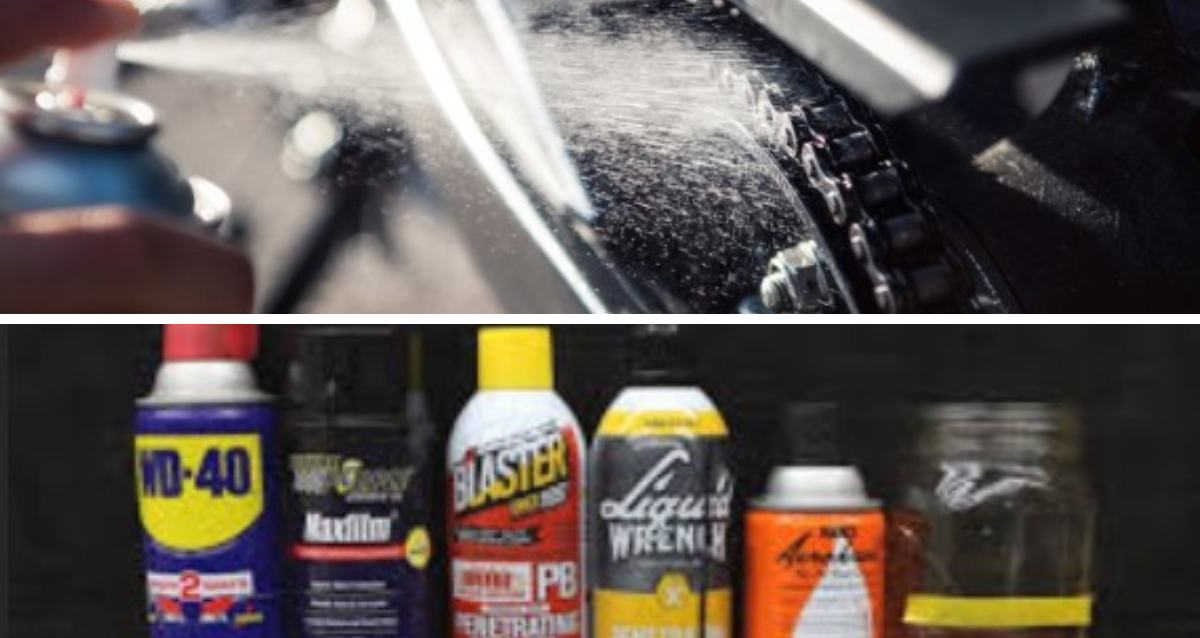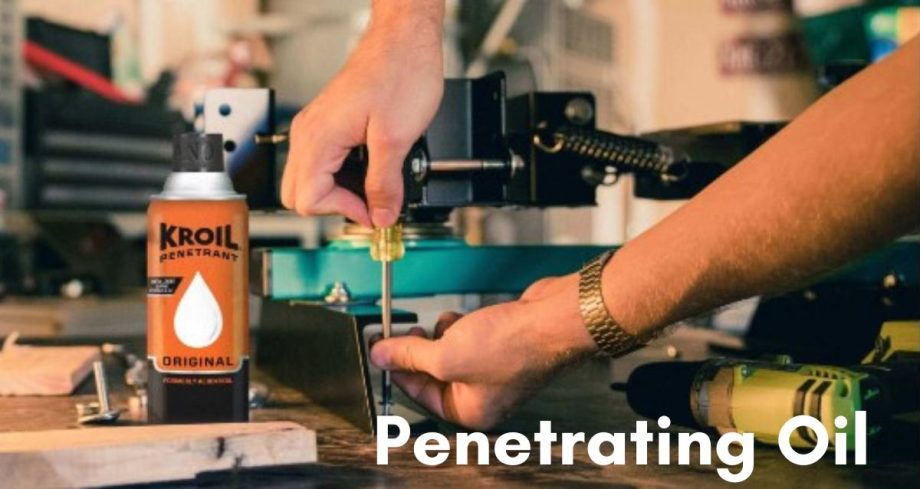Sometimes, hard work isn’t enough to get the job done. To loosen up problems that won’t go away, you need a good, deep oil. Penetrating oils can loosen rusted bolts on pipe fittings, valves, and connectors. They can also release stuck shower heads or taps and prevent threaded parts such as hose bibs, sink handles, and sprinkler heads from seizing up again. There are a lot of choices, so we’ve put together a list of the six best ones that plumbers trust.
Table of Contents
What is Penetrating Oil?
Penetrating oil is a low-viscosity lubricant that effectively penetrates tight spaces, cracks, and crevices. Standard lubricants coat the surface, while the best penetrating oils break down rust, corrosion, and other gunk that can bind parts together. This helps you loosen stuck or rusted components without damaging them.
Why Penetrating Oils Matter for Plumbing
Specifically designed to infiltrate rust and corrosion, the best penetrating oils break the bond between components. This function is essential for plumbers, who regularly deal with pipes and fittings exposed to moisture and rust. Whether tackling a seized bolt or maintaining fittings, using the right penetrating oil can make a significant difference.

Key Features to Look for in Penetrating Oils
Before diving into specific brands, consider these critical aspects:
- Viscosity: The oil’s thickness affects its ability to seep into tight spaces.
- Odour: Some oils have strong smells; select low-odour options for indoor work.
- Eco-Friendliness: Non-toxic and biodegradable oils are safer for health and the environment.
- Corrosion Protection: Look for oils that provide ongoing rust prevention.
Top Penetrating Oils for Plumbers
Liquid Wrench: Powerful and Affordable
Liquid Wrench is a versatile choice for plumbers. Known for its rust-breaking ability, this oil penetrates tight spaces effectively. The liquid wrench has a lower odour than many alternatives, making it ideal for residential plumbing tasks where strong smells might be a concern.
- Best for: general plumbing tasks.
- Pros: affordable, minimal odour.
- Cons: Not ideal for severe rust
Royal Purple Maxfilm: Eco-Conscious Choice
For plumbers mindful of environmental impact, Royal Purple’s Maxfilm offers a powerful, non-petroleum solution. It provides lasting lubrication, reducing friction and wear, and preventing future rust.
- It works best for long-term protection in eco-friendly setups.
- Pros: Environmentally safe, non-petroleum
- Cons: Higher price range

WD-40: A Trusted All-Rounder
Recognised for its versatility, WD-40 is a household staple. Although not as strong as industrial-grade oils, it offers sufficient lubrication for minor plumbing repairs, such as easing tight fixtures and preventing rust on tools.
- It works best for light-duty plumbing and household repairs
- Pros: Widely available, versatile
- Cons: It is limited to severe rust or heavy-duty applications.
PB Blaster—Heavy-Duty Formula
For the toughest rust, PB Blaster stands out. Its strong formula penetrates even the most rusted components, making it a go-to for seasoned plumbers. However, its pungent smell may be off-putting for some.
- This product is ideal for tackling heavily rusted pipes and bolts
- Pros: powerful rust penetration
- Cons: strong odour.
Kroil: Premium Performance
Known for its superior performance, Kroil (or Aerokroil) provides exceptional penetration. This product is ideal for jobs requiring immediate loosening of seized parts. Although it costs more than other oils, many professionals find the results to be worth the investment.
- Best For: Premium, quick-action rust removal
- Pros: Highly effective on severe rust
- Cons: Premium cost
CRC Knock’er Loose, Industrial Grade
CRC Knock’er Loose is ideal for high-performance jobs and larger industrial tasks. Plumbing professionals working with heavily rusted or large-scale systems can use this as the best penetrating oil, which dissolves rust and corrosion quickly.
- This product works best for large projects with extensive rust.
- Pros: Industrial-grade strength
- Cons: Not necessary for lighter tasks
Practical Tips for Using Penetrating Oils
- Apply Sparingly: A small amount often does the job.
- Let It Sit: Allow time for the oil to work through the rust.
- Reapply as Needed: In tougher cases, additional applications may improve results.
- Use Protective Gear: Gloves and masks help prevent exposure to strong-smelling oils.

More read:
- Write Like a Pro: 50+ Best Writing Style for ChatGPT Prompts
- Fintechzoom Tesla Stock: Everything You Need to Know
- Zhuoxin Data Technology: Big Data Solutions in the Digital Age
How to Choose the Right Penetrating Oil for Your Plumbing Needs
When choosing the best penetrating oil, consider your usual tasks. For light-duty repairs, WD-40 or Liquid Wrench might be sufficient, while PB Blaster or CRC Knock’er Loose could be better for heavily rusted parts. For plumbers focused on eco-friendly solutions, Royal Purple provides reliable, sustainable options.
Final Thoughts
Choosing the right the best penetrating oil can enhance efficiency, prolong the lifespan of tools, and prevent ongoing rust issues. Each oil serves a unique purpose, so selecting the best match for your needs—whether budget-friendly, eco-conscious, or industrial-grade—ensures effective and streamlined plumbing repairs.
Frequently Asked Questions
Q: What is penetrating oil, and how does it differ from regular lubricants?
A: Penetrating oil is a low-viscosity lubricant designed to seep into tiny spaces and loosen rust and corrosion, unlike standard lubricants that only coat surfaces.
Q: Why is penetrating oil important for plumbing?
A: It helps loosen rusted, seized parts, making it easier to repair and maintain fittings and fixtures exposed to moisture.
Q: What should I consider when choosing the best penetrating oil?
A: Key factors include viscosity, odour, eco-friendliness, and corrosion protection.
Q: How does a liquid wrench work for plumbing tasks?
A: Liquid wrench is affordable and effective for general plumbing repairs with light rust but is less suited for severe rust situations.
Q: Is WD-40 suitable for heavy-duty plumbing repairs?
A: WD-40 works well for minor rust and household repairs but lacks the strength needed for heavily rusted or industrial applications.
Q: What makes PB Blaster effective for plumbers?
A: PB Blaster’s heavy-duty formula penetrates even the toughest rusted components, though it has a strong odour.
Q: Are there eco-friendly penetrating oils for plumbing?
A: Yes, Royal Purple Maxfilm is a non-petroleum, environmentally safe option that offers long-lasting rust prevention.
Q: How should I apply penetrating oil to stuck plumbing parts?
A: Apply a small amount, let it sit for a few minutes, and reapply if necessary. Always use protective gear.
Q: Can I use penetrating oil indoors?
A: Yes, but consider low-odour options like Liquid Wrench for indoor use to reduce exposure to strong smells.
Q: How does CRC Knock’er Loose perform in industrial plumbing?
A: CRC Knock’er Loose is designed for industrial-grade applications, dissolving rust and corrosion effectively on large-scale systems.
